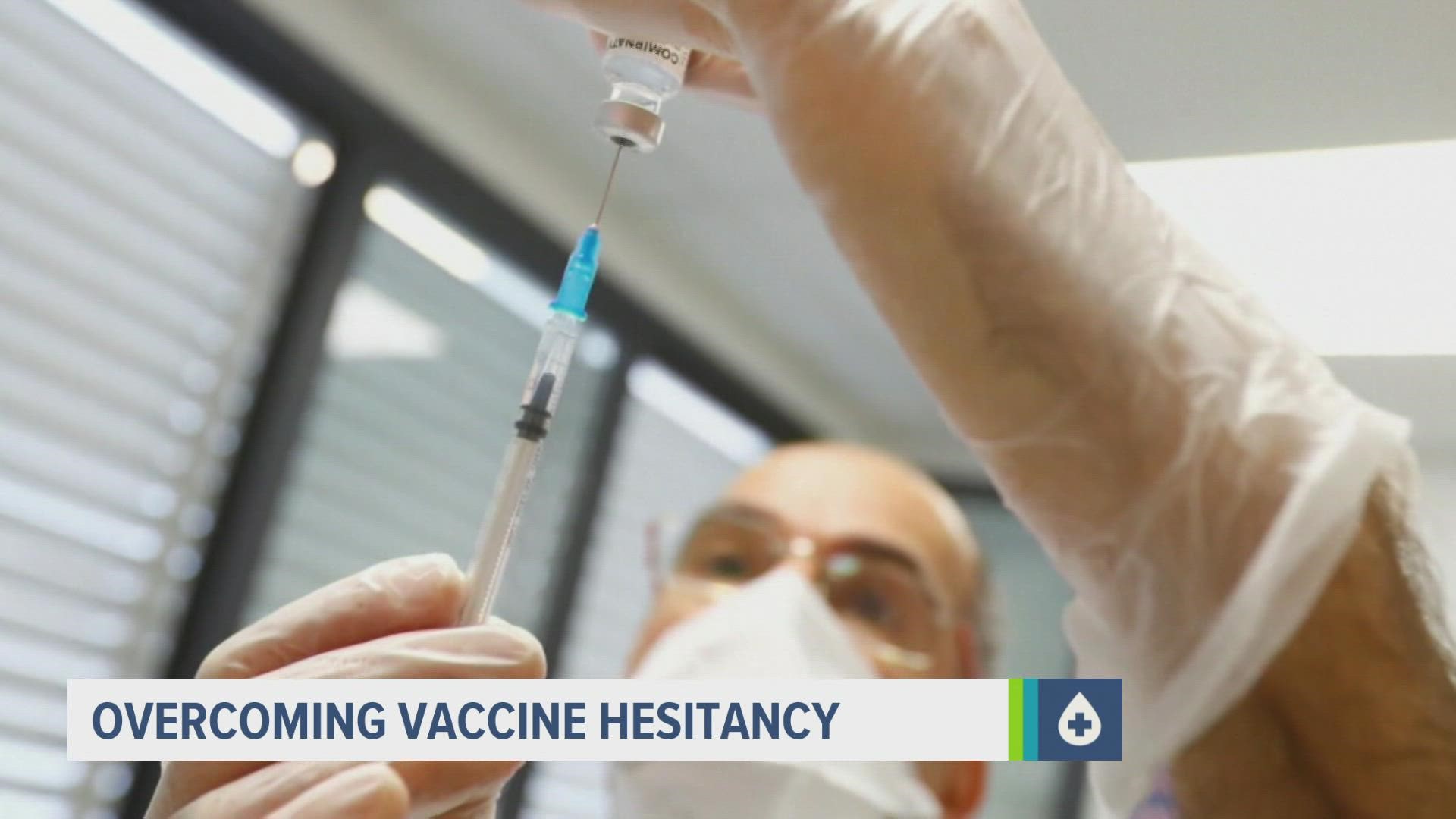AMES, Iowa — The Centers for Disease Control and Prevention (CDC) announced the U.S. reached a milestone in the fight against COVID-19 Thursday with 55% of the population fully vaccinated.
That rate pales in comparison to countries like Portugal, which boasts an 85% vaccination rate, and several other European countries, according to Our World in Data.
Iowa State University psychologist Dr. Alison Phillips said reasons for not getting vaccinated vary, and different subgroups have their own reasons to mistrust health systems.
"Historically, if members of their own cultural groups, historical groups would speak up in favor of vaccination, that would help overcome hesitancy in those groups," Phillips said.
For those people, Phillips said research shows less forceful language can be more powerful.
"The way we phrase mandates could be softened and not so demanding, and in a way that people are more likely to accept the mandate," she said.
That can mean combining mandates with things like vaccine incentive programs, such as Polk County's cash prize drawings. It also comes down to getting trusted sources to promote vaccines.
"So it's not all messages coming from the government and health officials, but there are the same messages coming from people who are trusted by these anti-vaccine groups or those who are just hesitant," Phillips said.
Miscommunication is part of the issue, but so is misinformation. According to Phillips, anti-masking and anti-vaccine rhetoric has become radicalized by a small but vocal minority.
"And they're better about using fear to persuade followers, and fear is separate from rational decision making," she said.
Phillips believes the solution lies in removing misinformation and using persuasive techniques for both vaccinations and mask-wearing.
WATCH | State now receiving monoclonal antibody drug allocation based on case burden, IDPH says

